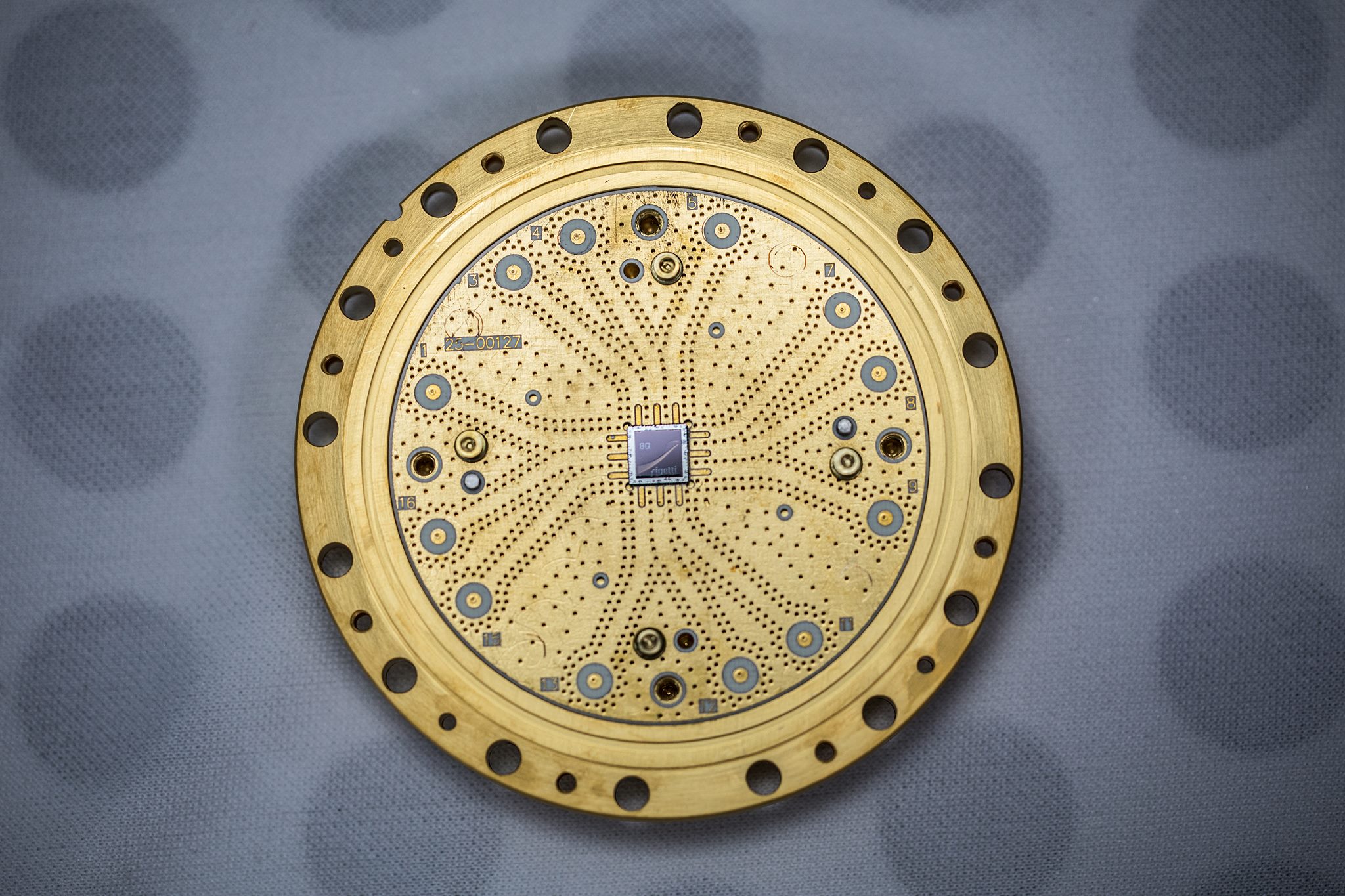 EMERGING TECH
EMERGING TECH
 EMERGING TECH
EMERGING TECH
 EMERGING TECH
EMERGING TECH
Rigetti Computing Inc. is getting closer to its goal of delivering what it calls the “quantum advantage,” or a working quantum computer that can solve problems faster, for less money or with better-quality results than a traditional machine can do.
Rigetti aims to become one of the first companies in the world to deliver a genuine, working quantum computer. It’s an ambitious goal when one considers that it’s going up against technology giants such as Google LLC, Intel Corp. and IMB Corp., but still there’s reason to believe Rigetti can deliver.
For one thing, it has raised a tidy $119 million in three funding rounds since its launch in 2013, and the company has already made available an 8-qubit and 19-qubit cloud-hosted quantum computer for researchers from universities and national laboratories to play around with.
But the company admits that “demonstrating quantum advantage is still an open challenge” because further technical hurdles need to be overcome in order to build more powerful quantum computers.
Quantum computers rely on “qubits” to process computations, which are far more powerful than the traditional “bits” found in classic computers. Whereas a bit is either 0 or 1, a quantum bit can be 0, 1 or something else. That something else can be 1/2, 9/16ths, 123/128ths or any other point on an multidimensional axis. This is called a “superpositioning” characteristic and it possible for qubits to represent complex problem sets that binary computers can’t approach.
Qubits also have an “entanglement” ability that allows them to correlate with each other so that each is aware of the state of all others. That means that quantum computers grow in power exponentially as more qubits are added.
The only problem is that gaining a quantum advantage will require “thousands if not millions of qubits” to play with, and devices such as these are still likely decades away from fruition, Rigetti said.
Still, the company is not to be deterred, and reckons it has come up with an ad-hoc solution capable of “enabling researchers and developers to meaningful pursue quantum advantage on near-term devices.” The solution is its new Rigetti Quantum Cloud Services announced today, which it said is a hybrid quantum-classical platform that combines the best bits of both computers and come tantalizingly close to the prospect of quantum advantage.
Researchers have begun to develop hybrid algorithms that use quantum computers as coprocessors in traditional computation, Rigetti said. That opens the possibility of achieving quantum advantage with just tens or hundreds of qubits.
Rigetti hasn’t achieved its quantum advantage yet, but it reckons its new hybrid quantum-classical computing platform is a big step in that direction. That’s because existing hybrid-quantum computing services split computation between a local classical device and a quantum computer over the cloud. This physical distance between the two corresponds to a significant delay in executing quantum computations, Rigetti said.
With Quantum Cloud Services, the company said, hybrid quantum-classical programs can be run in a virtual traditional computing environment side-by-side with its quantum hardware, so jobs that once took seconds now take milliseconds.
THANK YOU